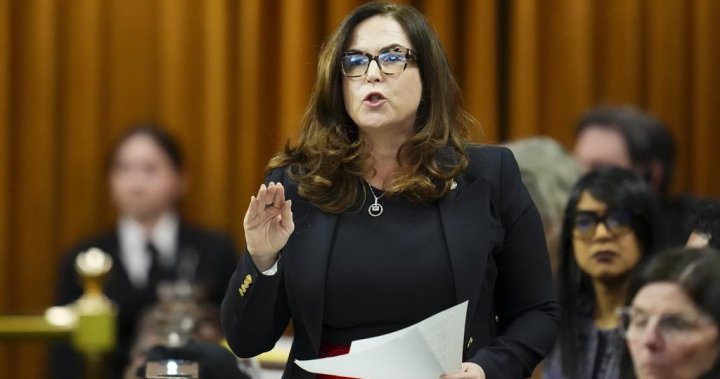The federal government is granting B.C.‘s request to once again ban the public use of illicit drugs, Mental Health and Addictions Minister Ya’ara Saks said on Parliament Hill on Tuesday.
B.C. currently has a three-year Criminal Code exemption for personal possession of drugs like heroin, cocaine and methamphetamines – up to 2.5 grams – as well as public use.
The goal has been to remove potential barriers from people seeking help by removing the fear of prosecution.
Prior to Saks’ announcement, Health Minister Mark Holland said the government took time to make a decision due to not wanting to make a choice that does “more harm than good.”
“This is a topic where all of us are just so saddened and heavy with the loss, and a lot of times when you’re in that state you almost get dysregulated and you want to act for the sake of acting because what’s happening is so painful,” Holland said on his way out of the weekly cabinet meeting.
“But if you’re not deliberative and you’re not careful, the action you take could end up doing more harm than good. So we have to be very careful when we take these actions that they’re rooted in evidence, they’re rooted in science and they’re going to make a difference that’s positive.”
Holland said the government is looking at ways to better treat people deeply struggling with addiction, keep communities safe while addressing the drug crisis and ways to support people before treatment because “you can’t treat someone who’s no longer living.”

B.C. Premier David Eby on April 26 announced that he asked the federal government to modify the province’s Criminal Code exemption to once again ban public drug use, including in parks and hospitals.
Breaking news from Canada and around the world
sent to your email, as it happens.
At the start of 2023, B.C. began its three-year decriminalization pilot project as the province grapples with high rates of opioid addiction.
“Addiction is a health issue, it is not a criminal law issue, and that principle is what the entire decriminalization project was about. It was about removing the stigma for people struggling with addiction, preventing them potentially from reaching out to others to ask for help … for fear of arrest, for fear of a criminal record,” Eby said last month.
“But that compassion, that concern for people who are struggling does not mean that anything goes. We still have expectations around safety, public spaces, in the coffee shop, on the bus, in the park, on the beach.”

Since the request was sent to Ottawa, it’s been at the center of the debate around how best to address the addictions crisis.
Conservative Leader Pierre Poilievre has repeatedly asked when the government will recriminalize drugs during question period, saying that six British Columbians a day are dying due to the current drug policy.
Poilievre was kicked out of the House of Commons on April 30 for unparliamentary language when he asked when the “wacko policy from a wacko prime minister” would be reversed. Under the rules of the house, you cannot use words or phrases that disparage another MP.

In 2023, 2,551 drug deaths in B.C. are linked to the unregulated market – a record high for the province.
In the first three months of 2024, drug deaths are seeing a slight decline in that province compared to 2023.
Over the last week-week-and-a-half, Prime Minister Justin Trudeau and Saks have said that they were working with their provincial counterparts, law enforcement and health professionals on how best to respond to B.C.’s request during question period.
On Monday, Saks said the toxic drug supply is the main driver in B.C.’s high drug death rate and they continue to work with the province and health professionals on how to best save lives.
© 2024 Global News, a division of Corus Entertainment Inc.





